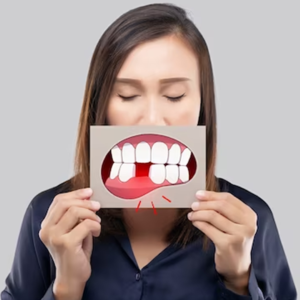A cracked tooth can be a source of discomfort and concern, but understanding the symptoms, treatment options, and prevention strategies can help you make informed decisions about your dental health. Cracks can occur due to biting hard foods, grinding teeth, or accidents. Here is an outline of what you should know about addressing a cracked tooth and how an emergency dentist can help.
Common Symptoms
Identifying a cracked tooth can be tricky, as symptoms vary depending on the severity of the crack. Here’s what to look out for:
- Pain when chewing or biting that feels intermittent.
- Sharp pain upon releasing biting pressure.
- Tooth sensitivity to hot, cold, or sweet foods and beverages.
- Swelling around the affected tooth.
- Discomfort that comes and goes, making it challenging to locate the issue.
If you’re experiencing any of these symptoms, consult an emergency dentist to assess the situation.
Treatment Options
Treatment for a cracked tooth depends on the extent of the damage. Dentists may recommend one of the following methods:
- Dental Bonding: This involves applying a composite resin to repair minor cracks and restore the tooth’s function and appearance. Dental bonding is a quick, effective solution for minor cosmetic or structural issues.
- Dental Crown: For cracks that compromise the tooth’s strength, a custom-made crown is fitted over the damaged tooth to protect it from further deterioration.
- Root Canal Therapy: When a crack extends into the tooth’s pulp, root canal therapy removes infected tissue while preserving the tooth structure. This prevents further damage and alleviates pain.
- Extraction: A tooth may need to be extracted for severe damage beyond repair, such as implants or bridges. Replacement options like implants or bridges are available to restore functionality.
- Night Guard: If grinding or clenching during sleep caused or worsened the crack, a custom-fitted night guard can prevent additional stress and damage.
How an Emergency Dentist Can Help
If you suspect a cracked tooth, an emergency dentist can provide immediate care to relieve pain, prevent further damage, and stabilize the tooth. They offer treatments like bonding, crowns, or fillings based on the severity of the crack, and use diagnostics like X-rays to create a tailored plan. Addressing the issue early helps avoid complications, invasive treatments, or tooth loss while guiding aftercare and prevention.
Prevention Methods
Preventing a cracked tooth is easier than you might think. Start by avoiding habits that put unnecessary pressure on your teeth, such as chewing on hard objects like ice, hard candies, or pens, which can lead to cracks. Wearing a mouthguard is a good way to protect your teeth from impact-related injuries if you play sports. For those who grind or clench their teeth while sleeping, a night guard can help prevent long-term weakening and damage.
Maintaining proper oral hygiene is also key; brush and floss daily to keep your teeth strong and healthy. Finally, don’t skip those regular dental check-ups. Your dentist can detect and address potential issues early before they become more serious. Following these simple steps can help protect your teeth and reduce the risk of cracks.
Act Fast to Protect Your Tooth
If you suspect a cracked tooth or need prevention advice, don’t wait. Proper care can preserve your tooth and prevent further complications. Early treatment can make a big difference in saving your tooth and avoiding long-term issues. Contact an emergency dentist as soon as possible to discuss your symptoms and possible treatment options.

Leave a Reply